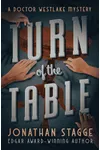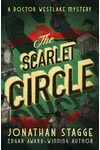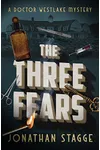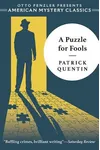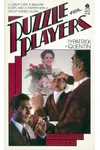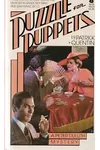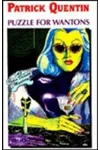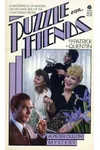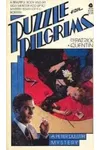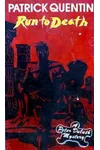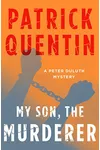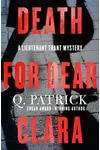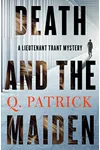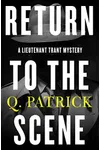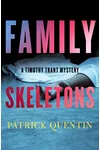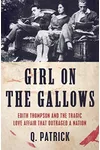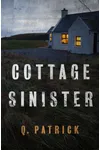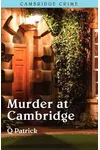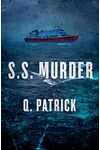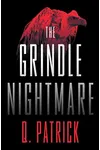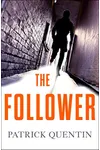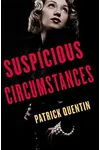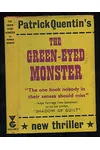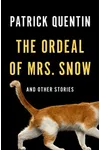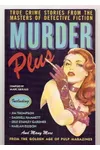Picture a shadowy duo spinning clever mysteries that keep you guessing until the final page—meet Patrick Quentin, the pseudonym for a team of writers who redefined detective fiction! Primarily Richard Wilson Webb and Hugh Callingham Wheeler, with contributions from Martha Mott Kelley and Mary Louise Aswell, they crafted intricate puzzles under names like Q. Patrick and Jonathan Stagge, captivating readers from the 1930s to the 1960s. Their star sleuth, Peter Duluth, brought theatrical flair to crime-solving, blending personal drama with ingenious whodunits.
With a Special Edgar Award and a knack for turning ordinary folks into unlikely detectives, Patrick Quentin’s tales are a delightful mix of suspense and charm. Ready to dive into their world of secrets and surprises? Let’s unravel the story behind this mystery-making collective!
The Making of Patrick Quentin
Born in 1901 in Burnham-on-Sea, England, Richard Wilson Webb was a pharmaceutical executive in Philadelphia with a passion for mysteries. In 1931, he teamed up with Martha Mott Kelley, a Radcliffe graduate nicknamed 'Patsy,' to pen their first novel, Cottage Sinister, under the pseudonym Q. Patrick—a clever blend of their nicknames 'Pat' and 'Rick,' with a quirky 'Q' for intrigue. Their partnership was short-lived as Kelley married, but Webb soon found a new collaborator in Mary Louise Aswell, and later, the talented Hugh Wheeler, a London-born writer who joined in 1933. Together, Webb and Wheeler became the heart of Patrick Quentin, living and writing as partners until their split in 1951.
Wheeler, born in 1912, brought a theatrical sensibility, later earning Tony Awards for musicals like Sweeney Todd. Their collaboration thrived on a shared love for Golden Age detective fiction, inspired by Agatha Christie and John Dickson Carr, but with a fresh twist: protagonists who were everyday people caught in extraordinary crimes.
Patrick Quentin’s Unforgettable Stories
Patrick Quentin’s bibliography is a treasure trove of over 30 novels, with the Peter Duluth series as their crown jewel. Introduced in A Puzzle for Fools (1936), Duluth, an alcoholic theatrical producer, stumbles into mysteries that test his wit and heart. The novel follows his rehab stint, where murders disrupt his recovery, blending suspense with personal stakes. Puzzle for Pilgrims (1947), a noir-tinged tale set in Mexico, won France’s Grand Prix de Littérature Policière for its intricate plot and emotional depth.
The Ordeal of Mrs. Snow (1963), a short story collection, earned a Special Edgar Award for its chilling tales of betrayal and murder. Cottage Sinister (1931), their debut, set the tone with its eerie rural setting and clever twists. Their style evolved from classic whodunits to darker, psychological thrillers, often exploring themes of deceit and adultery, with richly drawn characters and playful narrative gimmicks, like hiding the true detective until the end.
Unlike traditional detective stories, Quentin’s works invited readers to question not just the culprit but the sleuth’s identity, making each book a delightful puzzle. Their settings—glamorous theaters, transatlantic ships, or quaint villages—added cinematic flair, influencing adaptations like Black Widow (1954), a film starring Van Heflin as a reimagined Duluth.
Why Patrick Quentin Matters
Patrick Quentin’s legacy lies in their innovative approach to detective fiction, blending fair-play puzzles with psychological complexity. They moved the genre beyond chessboard mysteries, crafting stories where personal stakes—love, loss, betrayal—drove the narrative. Their work influenced later crime writers, and their ability to maintain suspense while weaving humor and humanity remains timeless. Though less known today, their novels, praised by critics like Francis Iles, once rivaled the genre’s giants.
Their pseudonyms and partnerships reflect a collaborative spirit rare in literature, showcasing how diverse voices can create a unified legacy. For fans of classic mysteries, Patrick Quentin offers a thrilling rediscovery, their books still sparking joy in readers who crave clever, character-driven tales.
- Born: Richard Webb (1901), Hugh Wheeler (1912)
- Key Works: A Puzzle for Fools, Puzzle for Pilgrims, The Ordeal of Mrs. Snow
- Awards: Special Edgar Award (1963), Grand Prix de Littérature Policière (1949)
Snag A Puzzle for Fools and dive into Patrick Quentin’s thrilling world of mystery and mayhem!
